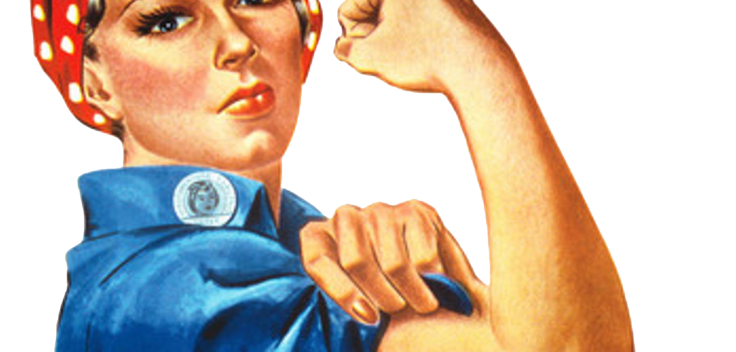My Darlings, please enjoy this wonderful article by Paula Marie Usrey. Paula founded Boomer Best U to promote positive aging and to fight age discrimination. In this article, she discusses how we have the power to project our strength and value as we age. And, I have to agree with her! Happy Reading.
We Have the Power to Project Our Strength and Value as We Age
I love to bicycle and jog along rural roads. Fortunately for me, I live two blocks away from country pastures filled with sheep, creeks and ponds, rolling hills, a covered bridge, and lots of ancient trees. I especially enjoy the trees and one in particular. When I get winded, I like to take a short break, leaning against an expensive oak tree with welcoming limbs and lots of character etched into her protective bark. Because of her age and character, I think most people would say she is truly strong and beautiful.
I find it interesting that trees and other objects are often perceived as stronger, more beautiful, and valuable as they age. We humans—and especially those of us who are female—are not so fortunate. As we move past fifty and signs of aging become more visible, we are supposed to hide our age or become “invisible.”
We Cannot Let Others Define Us
When others perceive us as “older,” we are often stereotyped as feeble, frail, and less capable than younger women. The danger for each of us is that when we internalize these perceptions, a plethora of research tells us that it can affect our health, emotional well-being, and our cognitive performance. In a July 2019 interview with NPR, Cornell University gerontologist Karl Pillemer said, “People who internalize ageist attitudes and are very afraid and negative about their own aging really do worse in the last third of life.”
The World Health Organization reports that age-related stereotyping is the “most socially ‘normalized’ of any prejudice, and is not widely countered…” Nonetheless, we do have the power to counter age-related prejudice. By doing so, we can also embrace the strength and value we’ve developed because we are older.
Outlook as a Source of Power
Our own attitude toward aging is one of our more effective strategies for enjoying our second and third chapters to the fullest. Various research has suggested that embracing a positive attitude toward aging is associated with longevity and well-being.
Identifying the various aspects we enjoy about being older women can be especially empowering. I love the fact that I no longer have to prove myself. And I also appreciate the fact that with age, we are often able to see bigger patterns in life. I like to think that I’m also a bit wiser than I was earlier in my life. Neuroscientist Daniel Levitin explains in his book, Successful Aging, that we also have the potential to become wiser as we age (though not all people necessarily do). Levitin suggests we may develop more wisdom as we age because the networks in our brains evolve, and we can use our prior knowledge and experience to identify universal principles and patterns.
Cultivating Optimism with Age
We also have the power to cultivate a more optimistic attitude about life in general. Optimism is often described as an attitude or expectation that good things will happen or that “the future will be favorable because we can control important outcomes.” Research suggests that optimistic people tend to live longer, more satisfying lives.
Developing an optimistic outlook is an intentional choice. One article described a study that found by imagining “the best possible version” of ourselves, we can experience a higher degree of optimism. I personally prefer using “reframing” strategies. When I experience something negative such as age-based stereotyping, I look at it as an opportunity to challenge myself toward growth and new ways of responding. While people who know me will typically say I’m an optimistic person, it is something I’ve had to learn and to develop over my lifetime. Interestingly, most of us tend to be drawn to more optimistic people – that’s another upside of cultivating a positive outlook.
The Power of Intentional Nonverbal Communication
Another strategy we can use to embrace our own strength is to intentionally modify our nonverbal communication. When I refer to nonverbal communication, I am talking about anything that can be observed other than the literal words themselves.
As women, what do we tend to do nonverbally when our confidence has eroded? Often, we tend to talk with more vocal disfluencies (“um,” “uh,” etc.). Some of us fail to project our voices. We may also compress our bodies—our feet may be close together. And, it is not uncommon to see women revert to the “fig leaf” pose when standing in front of others. When we are constantly told that aging is negative, it is too easy to reinforce this message by practicing behaviors that make us more invisible.
One of the courses I used to teach was public speaking. A majority of people feel a lack of confidence when they stand in front of others. One exercise that usually helped students to practice using their bodies to project confidence and a sense of presence. By opening up their bodies and by learning to project their voices, students appeared more confident and reported that they felt more confident as well.
In 2012, social psychologist Amy Cuddy gave her TED Talk, “Your Body Language May Shape Who You Are.” That research-based presentation has become one of the most popular TED Talks of all time. Based on solid research, Professor Cuddy was able to demonstrate that by intentionally modifying some of our nonverbal behaviors, we can affect how we see ourselves and how others perceive us.
We Have the Power of Choice
Depending on how I want to present myself, I am often intentional about how I use my body, my voice, the way I dress, and the way I use space. When I think about how I want to use my body to convey my power and my inherent value, I think of myself as an expansive older oak tree. I am grounded with deep roots and stand firm. I take up space but also serve as a well of strength for others. And, I love being an older woman. By intentionally choosing a positive attitude toward aging, by cultivating an optimistic outlook, and by using my own sense of presence, I am letting others know that aging is a magnificent, powerful experience. You have the same choice.
As you age, what obstacles have you fought against to be your best self? Let us know in the comments at the bottom of the page.

Paula Marie Usrey founded Boomer Best U to help promote positive aging and fight age discrimination. She has also given a TEDx presentation on how to live your best life at any age. Paula recently retired as an Associate Professor of Communication from Umpqua Community College.
If you enjoyed this article, please subscribe. Each daily story will be delivered straight to your inbox.



Good Morning,
I have always been a positive person and very active and always looking forward to what was next. I never felt I was really aging until I found out that some of the health issues I was facing were contributing to my weakness, pain, and overall bad attitude because I had to deal with these issues for more than a day or a week or so.
I was diagnosed with fibromyalgia about 3 years or so ago. At least I knew what was causing lots of my issues. I decided to research and do everything I could to fight this disease. I changed my diet, lost weight, and found many new ways to fight this disease.
I believe the biggest issue is staying firm with a commitment to fight the daily pain, weakness and tiredness. Some days I feel pretty good, some days I want to crawl in bed all day. I also have difficulty separating fibro issues apart from just normal aging issues.
I have always been a happy person and have faced many difficulties in my life with strength and determination. With fibro, sometimes that works and sometimes it doesn’t. I get depressed sometimes now which I hate, and can’t figure out why. I usually pray about it and it will gradually get better. I don’t know what the future holds but I have wonderful children, grandchildren and even 2 great grandchildren which I love dearly and greatly miss seeing because of the covid virus. Thanks for your article, it helped me to see things I hadn’t thought about. Continue writing if you enjoy it, you are good at it,. I love to garden, sew and quilt and when my body will allow me I do all of them.
Regards,
De De Collins
De De,
Thank you for sharing your experience and the ways in which you are continuing to grow and learn. You have inspired me.
Best,
Paula Marie